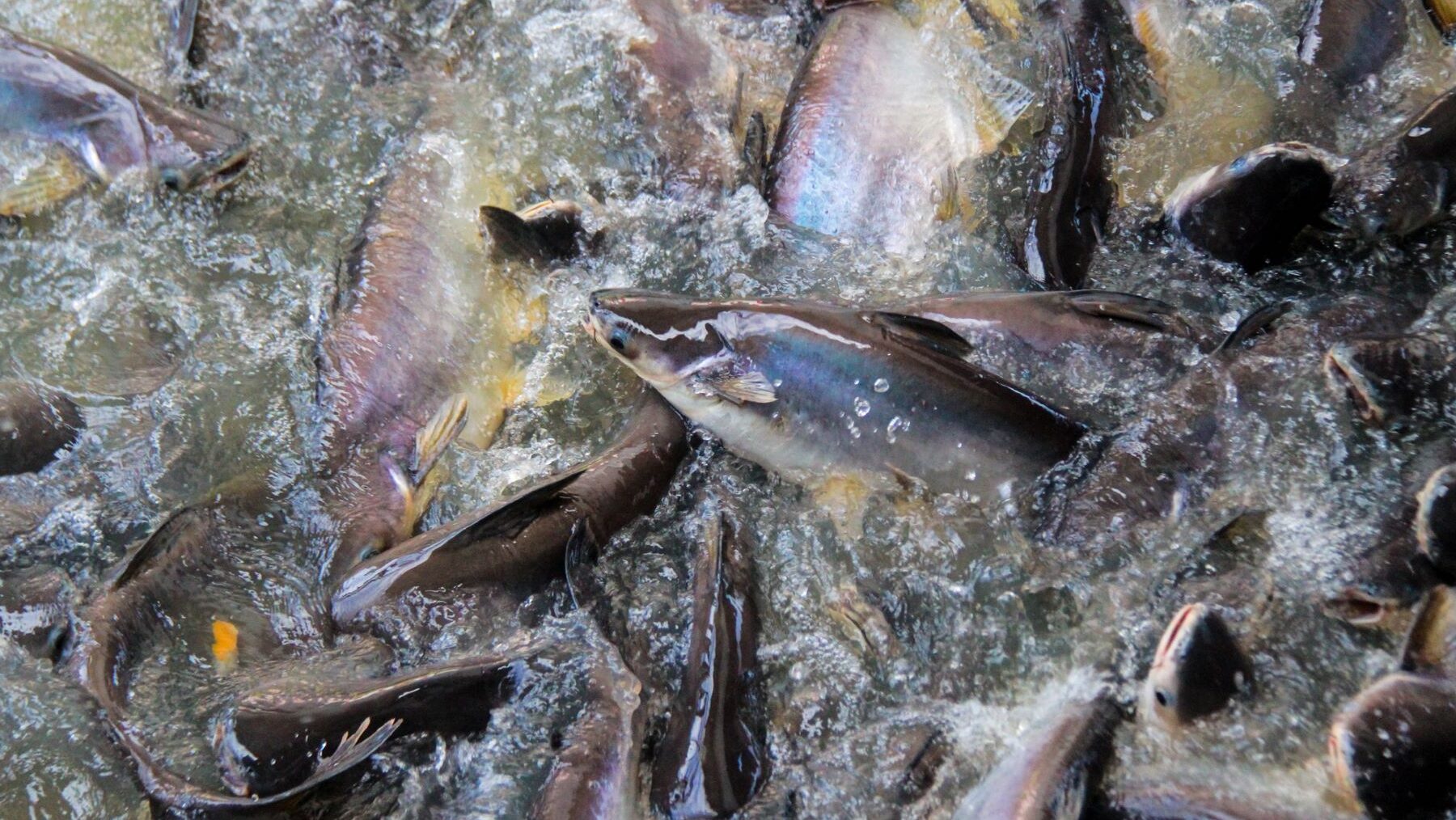Compassion in world agriculture and Eurogroup for Animals rely on the research results to argue for stricter legislation the welfare of fish in the EUwhich a truly overwhelming majority of participants support.
A new survey recently published by Compassion in World Farming and Eurogroup for Animals shows that an overwhelming 91% of people surveyed in nine EU countries believe that The welfare of fish should be protected to the same or greater extent than that of other farm animals. In Spain, the same percentage of respondents agree.
The study, conducted by Sapience, interviewed more than 9,000 people in nine EU countries public attitude towards fishtheir knowledge of fish farming practices and their consumption of fish products.
In the About a billion fish are farmed in the EU every year.and there is currently no specific legislation that takes into account their unique needs, allowing unethical practices to persist. As a result, many experience pain and suffering on intensive farms.
Overcrowding makes them more susceptible to disease and stress, abuse and physical harm, and starvation is a common practice. In the EU Fish are often slaughtered inhumanely and many suffer a slow, painful death. by suffocation or even by being stripped alive, despite extensive research showing that fish are sentient beings, capable of feeling pleasure and pain.


Both interest groups animal welfare Urge the European Commission to adopt specific provisions for the welfare of farmed fish in the context of general revision of animal welfare legislation.
NGOs today sent a public letter to the candidates for Agriculture, Animal Welfare and Fisheries, asking them to prioritize the publication of the remaining animal welfare proposals and ensure that high levels of protection for farmed fish and other aquatic animals.
This initiative is supported by four out of five people surveyed in the nine EU countries, who support legislation that promotes best practice and the latest scientific developments to meet the specific welfare needs of aquatic animals fish farm
Strong defense of fish welfare
The research also found that:
- Many EU citizens are unaware of the most common fish farming methods and their consequences. 63% of Spanish citizens show little knowledge of current fish farming practices, the worst result of all countries surveyed. For example, only 70% of Spain’s residents are aware of this percentage fish that die during their breeding in fish farms is significantly greater than that of farmed terrestrial animals.
- 71% agree fish can feel pain. In Spain, 68% agree with this statement.
- Only 25% of all residents of Spain are aware that the majority of them farmed fish is not stunned (made unconscious) before slaughter (the lowest rate of all countries surveyed) and 65% said stunning should be a legal requirement.
When it comes to purchasing fish products, more than 9 in 10 people said they would like to buy farmed fish under better welfare conditions, while 71% said they would like fish products to have clear welfare labeling showing how the fish was raised.
Statements
Dr. Natasha Boyland, Senior Research and Policy Advisor (Aquatic Animals), Compassion in World Farmingadded: “Our new research shows that the vast majority of EU citizens surveyed are concerned about the welfare of farmed fish.
However, many are unaware of the atrocities that can be committed during breeding and slaughter, and furthermore that this is all happening because they have no legal protection. The piecessuch as animals raised on land conscious beings who need laws to minimize their suffering. “We now urge the European Commission to respond to citizens’ concerns and introduce fish-specific laws accordingly.”
Reineke Hameleers, Directora General de Eurogroup for Animals, has stated: “Despite billions of people being farmed, extensive studies highlighting their sensitivity, and citizens’ demands for better protection, fish they are still ignored.
We hope that this will also be the case in the next revision of EU animal welfare legislation specific measures to protect your needs and significantly improve welfare conditions in EU aquaculture.”
The survey was completed by 9,197 respondents Czech Republic, France, Germany, Greece, Italy, Poland, Spain, Sweden and the Netherlands between March 20 and April 5, 2024. The samples examined were representative of the national population in terms of age, gender and region.
It would be very important if EU politicians would stop making decisions that have an impact sentient beings such as fish and other aquatic animalsbased only on the interests of the fish farm owners and listened a little more to scientists, animal protection associations and their voters.

